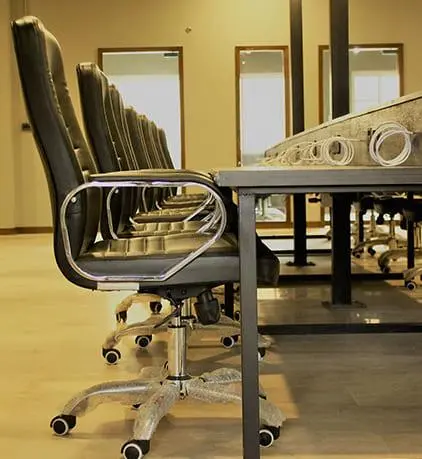Collaboration is the backbone of innovation, especially in shared office desk environments. These setups, often found in coworking spaces or shared office spaces in Islamabad, are designed to foster teamwork and create opportunities for individuals and businesses to connect. However, creating a truly collaborative culture requires more than just open spaces and desks. It demands thoughtful strategies, shared goals, and a commitment to inclusivity.
This guide will explore how businesses and individuals can nurture collaboration in shared office desk environments, helping you make the most of your workspace.
1. Understand the Benefits of Collaboration
Shared office desks inherently promote interaction among professionals from various fields. Here are the key benefits:
- Diverse Perspectives: People from different industries and backgrounds bring fresh ideas.
- Networking Opportunities: Connections made in coworking environments can lead to partnerships or new clients.
- Enhanced Creativity: Working alongside others can inspire new approaches to problem-solving.
- Cost Efficiency: Collaborative efforts reduce costs by sharing resources.
Realizing these benefits starts with creating an environment that encourages mutual support and communication.
2. Design the Workspace for Interaction
The physical design of the workspace has a significant impact on collaboration.
- Open Layouts: An open space with shared office desks allows for easy interaction. Avoid excessive cubicles, which can create silos.
- Breakout Areas: Include communal spaces such as lounges or coffee stations where people can converse informally.
- Private Spaces: While collaboration is key, some individuals or teams may need privacy for focused work. Providing coworking private offices or executive office suites ensures balance.
- Flexible Workspaces: Adaptable seating arrangements can accommodate teams of different sizes and encourage spontaneous discussions.
For businesses operating in coworking spaces in Islamabad, many facilities already offer these features. Selecting a flexible workspace that aligns with your team’s needs is essential.
3. Foster Open Communication
Open communication is vital to collaboration. Shared office desks naturally bring people closer, but proactive measures ensure everyone feels included.
Strategies to Promote Communication:
- Host Regular Meetings: Arrange team huddles or brainstorming sessions to share ideas.
- Digital Communication Tools: Use apps like Slack, Zoom, or Trello to streamline communication among hybrid or remote team members.
- Encourage Feedback: Create a culture where everyone feels comfortable sharing their opinions.
If you’re working in a shared office space in Islamabad, utilize shared bulletin boards or group chats to keep everyone informed and connected.
4. Create a Sense of Community
Building relationships is the cornerstone of collaboration. In a shared workspace, this often means cultivating a sense of belonging among all users.
- Welcome New Members: Introduce newcomers to the team and provide an overview of shared office practices.
- Social Events: Organize activities such as lunch-and-learns, team-building exercises, or after-work gatherings to strengthen bonds.
- Celebrate Achievements: Acknowledge successes, both big and small, to boost morale and foster camaraderie.
Such efforts are particularly important in a small coworking space, where close-knit relationships can make a significant impact.
5. Leverage Technology for Collaboration
Modern technology is a critical enabler of collaboration. From shared documents to advanced project management tools, leveraging the right tech can streamline teamwork.
Tools to Enhance Collaboration:
- Google Workspace: Share documents, spreadsheets, and calendars in real-time.
- Asana or Monday.com: Manage tasks and track progress on projects.
- Miro: Collaborate on visual boards for brainstorming sessions.
- Time Management Apps: Tools like Clockify or RescueTime ensure efficient scheduling.
Selecting a coworking space in Islamabad with strong internet connectivity and tech support is crucial for seamless collaboration.
6. Encourage Knowledge Sharing
A collaborative culture thrives when individuals openly share their expertise. Shared office desks provide an excellent platform for this.
- Skill-Sharing Sessions: Arrange workshops where members can teach their specialties to others.
- Resource Sharing: Provide access to shared resources like books, software, or industry-specific tools.
- Cross-Industry Insights: Encourage professionals from different fields to discuss trends or challenges in their industries.
For example, an entrepreneur in an executive suite could benefit from a web designer’s advice, creating mutual value.
7. Establish Clear Guidelines
While collaboration is essential, it’s equally important to set boundaries and expectations. Clear guidelines ensure the shared space remains respectful and productive.
- Desk Sharing Etiquette: Outline rules for desk use, such as cleanliness and time limits.
- Noise Management: Encourage the use of headphones or quiet zones for phone calls.
- Conflict Resolution: Have a policy in place for resolving disputes amicably.
Choosing a shared office space in Islamabad that already has established rules can make this process easier.
8. Encourage Leadership and Initiative
In collaborative settings, leadership doesn’t always come from the top. Encourage individuals to take initiative and lead projects or discussions.
- Identify Natural Leaders: Look for team members who naturally inspire others.
- Empower Decision-Making: Give individuals the authority to make decisions within their expertise.
- Reward Proactive Behavior: Recognize and reward those who contribute positively to the workspace.
In executive suites or coworking private offices, these leadership opportunities can lead to personal and professional growth.
9. Adapt to Cultural and Regional Needs
For teams working in coworking spaces in Islamabad, understanding local culture and values can enhance collaboration.
- Respect Diversity: Celebrate cultural differences to build a more inclusive environment.
- Adapt Work Styles: Consider local working hours or holiday schedules when planning meetings.
- Support Community Initiatives: Partner with local businesses or charities to create a sense of purpose beyond work.
10. Measure and Improve Collaboration
Finally, assess the effectiveness of your collaboration strategies and make improvements as needed.
Key Metrics to Track:
- Engagement Levels: Are team members actively participating in meetings and discussions?
- Productivity: Has teamwork led to better results or faster project completion?
- Feedback: Gather input from coworkers about what’s working and what isn’t.
Continuous evaluation ensures that the collaborative culture remains dynamic and effective.
Conclusion
Creating a collaborative culture in a shared office desk environment is both an art and a science. By focusing on thoughtful design, open communication, and community building, businesses can unlock the full potential of shared workspaces. Whether you’re in a small coworking space, an executive suite, or a coworking space in Islamabad, these strategies can transform your workspace into a hub of innovation and teamwork.




